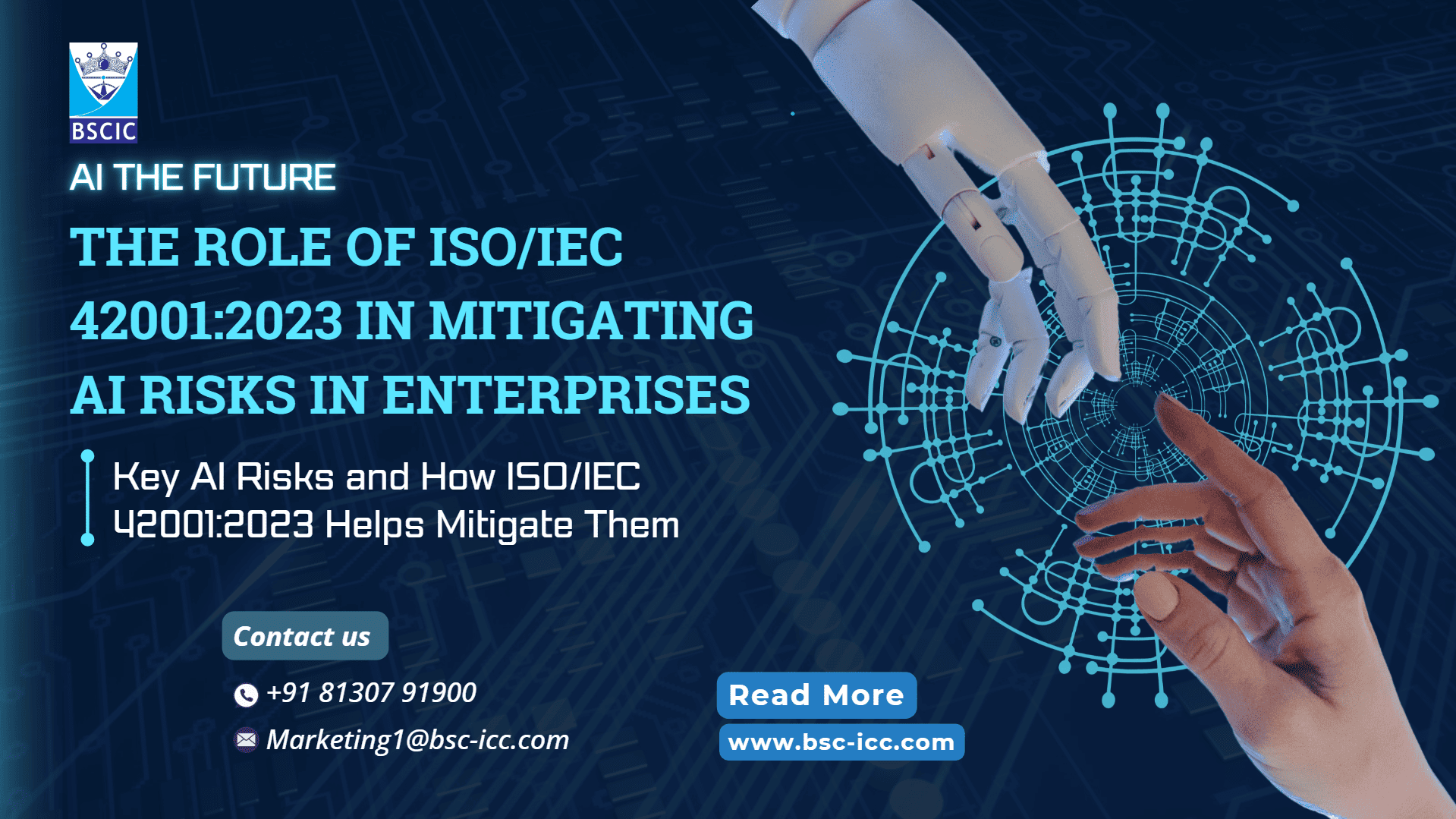
The Role of ISO/IEC 42001:2023 in Mitigating AI Risks in Enterprises
Introduction
Artificial Intelligence (AI) is revolutionizing businesses by improving efficiency, decision-making, and automation. However, these advancements also bring significant risks, such as ethical dilemmas, security threats, and regulatory hurdles. To address these challenges, organizations require a structured framework—ISO/IEC 42001:2023, the AI Management System Standard.
Understanding ISO/IEC 42001:2023
ISO/IEC 42001:2023 is an internationally recognized standard that offers a systematic approach to AI governance, compliance, and risk management. It assists organizations in adopting responsible AI practices while ensuring transparency, accountability, and security.
Key AI Risks and How ISO/IEC 42001:2023 Helps Mitigate Them
Bias and discrimination in AI algorithms represent a major risk, as AI systems can inadvertently introduce biases that result in unfair or discriminatory outcomes. ISO/IEC 42001:2023 provides guidelines to ensure fairness, conduct regular audits of AI models to identify and address biases, and implement ethical AI development frameworks.
Cybersecurity and data privacy threats are another significant concern. AI-driven systems handle large volumes of sensitive data, making them attractive targets for cyber threats. ISO/IEC 42001:2023 aids organizations in establishing strong AI security policies, implementing encryption and access control measures, and performing regular security assessments and penetration testing.
A lack of transparency and explainability in AI can lead to trust issues. Many AI models function as "black boxes," making it challenging to comprehend their decision-making processes. ISO/IEC 42001:2023 encourages practices for AI explainability and interpretability, documentation of AI model development and decision logic, and mechanisms for human oversight and intervention.
Regulatory non-compliance is an increasing challenge as AI-related regulations like the EU AI Act and GDPR evolve quickly. Businesses need to ensure they comply with international legal frameworks, maintain AI governance policies that meet compliance standards, and create audit trails for accountability in AI systems. ISO/IEC 42001:2023 offers a structured approach to align AI operations with these regulatory demands.
Operational failures and reliability issues can disrupt business processes. AI systems may fail unexpectedly, causing operational interruptions. ISO/IEC 42001:2023 provides risk management frameworks to continuously monitor AI system performance, implement fail-safe mechanisms and redundancy plans, and conduct regular validation and testing of AI models.
Implementing ISO/IEC 42001:2023 for AI Risk Mitigation
Organizations should start by performing AI risk assessments to identify and evaluate the risks associated with AI applications. Developing AI governance policies that align with ISO/IEC 42001:2023 requirements ensures a systematic approach to responsible AI implementation. Staying informed about AI-related legal and ethical standards helps minimize legal risks and ensures regulatory compliance. Training employees on AI risks and best practices promotes a culture of responsible AI usage. Continuous monitoring and improvement of AI systems through regular audits and refinements of governance strategies enhance AI performance and security.
Conclusion
As businesses adopt AI, the need for strong risk mitigation strategies becomes essential. ISO/IEC 42001:2023 provides a comprehensive framework that enables organizations to manage AI risks effectively, ensuring security, compliance, and ethical deployment of AI. By embracing ISO/IEC 42001:2023, companies can build trust, improve reliability, and stay competitive in an AI-driven landscape.
